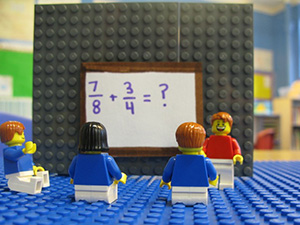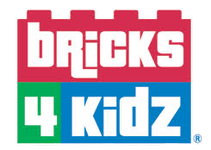So your child isn’t crazy about math. One recent study has a finding that is perhaps not so surprising: Your attitude about math may be a big influence in how your children perform in the classroom.
If you’re slinging casual quips about your lack of mathematical ability, or muttering about your deep and long-lasting hatred for the subject, that attitude could be rubbing off on them. Makes sense. If they keep hearing the message that math is “hard” and “bad,” they’re not going to be feeling all that great when it’s time to sit down for standardized tests and big exams. And who can battle math monsters in a state of high anxiety, complete with sweaty palms and a bit of hyperventilating?
The antidote: Get creative and find some fun activities you can do during your downtime to “normalize” math. Even if nature versus nurture arguments make you wonder if you really can turn things around, the recent study shows there’s one thing you can do that just might work: Make math normal.
Which also makes sense. Because practice makes perfect, right?
In the study, the parents and the kids used a math app we’ve blogged about before, Bedtime Math.
After a year of working through the stories and math problems together, parents rated themselves as feeling more at ease with their child’s math potential. While the parents didn’t feel any better about their own abilities, things seemed brighter for their kids.
Three years later, this attitude change showed up on their children’s math tests. The kids of math-anxious parents performed just as well as kids with math-confident parents.
In addition to working with Bedtime Math, here are some other math-normalizing activities parents and kids can do together to make everyone feel more at ease with math.
Get into the kitchen:When following a recipe, math goes to work, especially when it comes to planning and understanding those weights and measurements, and getting the amounts just right. To get a real-world look at fractions in action, show how smaller measuring cups and spoons add up to a whole. Or get out the food scale and convert grams to ounces. As they become more adept, talk about doubling and halving a recipe. In addition to gaining all that everyday math, they’ll learn a valuable life skill that will benefit you when they get older!
Make change:Next time you treat the kiddos to a cone or a trinket, give them the cash and let them plan, choose and pay for their own purchases. Banking the spare change and letting it accumulate can pave the way for coin counting and saving up for something bigger!
Look for shapes:When you’re out and about, whether you’re on the road or waiting for a table at a restaurant, play the shape game. See how many rectangles you can make out, pointing to doorways, highway signs and countertops. Once they get an eye for the simple shapes, challenge them to find things like hexagons, ovals and trapezoids.

License plate game:For a fun addition (or multiplication) game on the road, pretend you’re working for a spy network, and “break the code” by adding together license plate numbers. To add a challenge, you can even assign a number value to the letters that appear on the plate! The result can unlock a vital answer in their “mission.”
Make it count:When building with a set of LEGO Bricks, challenge your kids to build their tower to the tallest height — and count the number of bricks it takes to get to that standing maximum. Or see how many bricks it takes to reach the ears of their favorite teddy bear, the bottom of the bed frame or some other piece of furniture.
Estimate:Before taking everyday trips, talk about distance and time. If soccer practice is five miles from home, make a friendly wager on how many minutes it will take to drive there. Be sure and do the same for hikes and bike rides. As they become better time masters, hand over the map and get them to calculate the distance.
Jump count:Kids love to count, whether it’s people in line, trail mix pieces or train cars. Show them how you can speed it up by counting by twos, and work up to counting by threes, fives and 10s.
Finally, look for an enriching activity that focuses on fun and hands-on learning. For 10 years, Bricks 4 Kidz has given kids the opportunity to learn, build and play with LEGO Bricks. Through fun and hands-on learning, kids have a building experience focused on STEM concepts — science, technology, engineering and math. Sign up for a class taking place in your community today.

